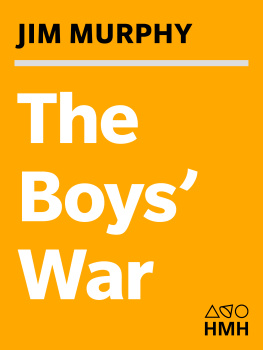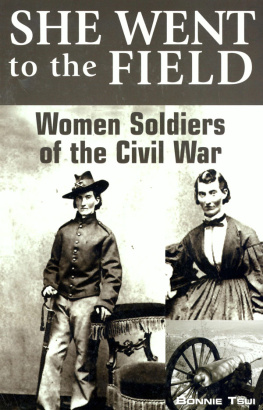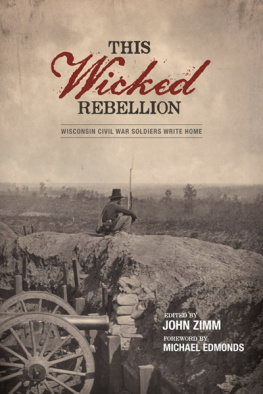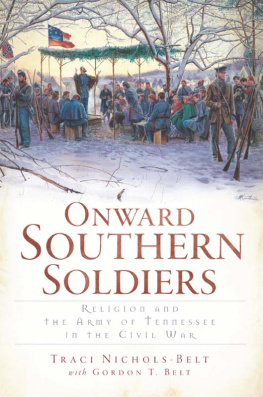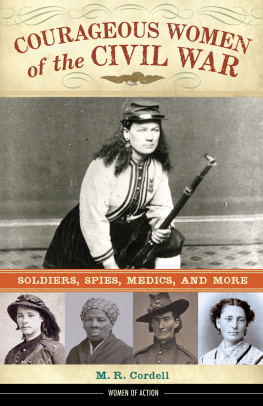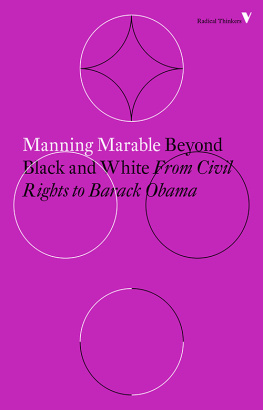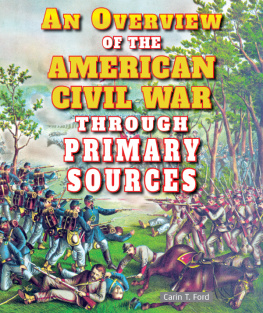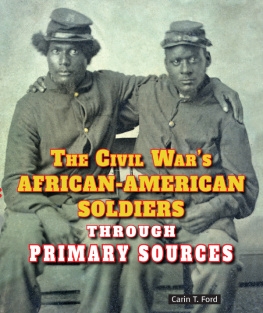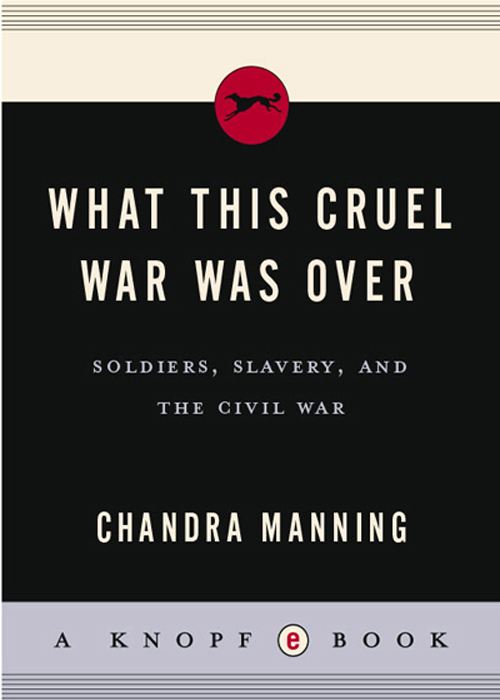
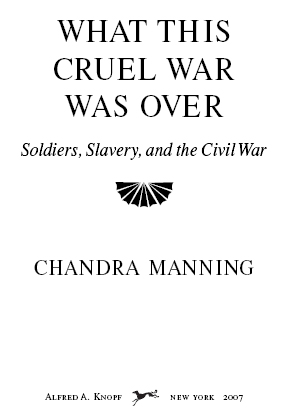
CONTENTS
Dedicated to the memory of my grandmother and my grandfather, who did not laugh when I, at the age of three, promised to dedicate my first book to them;
and to Derek, with all my love.
When This Cruel War Is Over
Charles C. Sawyer, 1862
The title What This Cruel War Was Over comes from the title of the most popular (at over one million copies of sheet music sold) song of the Civil War, at home and in camp, North and South, When This Cruel War Is Over, (sometimes also known as Weeping, Sad and Lonely). The tune is so mournful that some officers forbade men from singing it in camp, out of worries that it would harm morale. The prohibitions met with only limited success; white Americans everywhere continued to sing the song. Union and Confederate lyrics to the song were nearly interchangeable, except for the last two lines of the first verse. Below is the Union version; Confederates simply changed the last two lines of the first verse to read: Oh! How proud you stood before me, in your suit of gray/When you vowd from me and country neer to go astray.
Dearest Love, do you remember, when we last did meet,
How you told me that you loved me, kneeling at my feet?
Oh! How proud you stood before me, in your suit of blue,
When you vowd to me and country, ever to be true.
CHORUS:
Weeping, sad and lonely, hopes and fears how vain!
When this cruel war is over, praying that we meet again.
When the summer breeze is sighing, mournfully along,
Or when autumn leaves are falling, sadly breathes the song.
Oft in dreams I see thee lying on the battle plain,
Lonely, wounded, even dying, calling but in vain.
CHORUS
If amid the din of battle, nobly you should fall,
Far away from those who love you, none to hear you call
Who would whisper words of comfort, who would soothe your pain?
Ah! The many cruel fancies, ever in my brain.
CHORUS
But our Country called you, Darling, angels cheer your way;
While our nations sons are fighting, we can only pray.
Nobly strike for God and Liberty, let all nations see
How we loved the starry banner, emblem of the free.
CHORUS
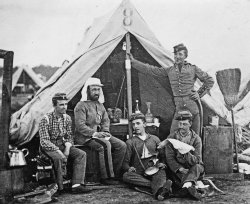
Union soldiers of the Seventh New York state militia at Camp Cameron, 1861. Courtesy of the Library of Congress
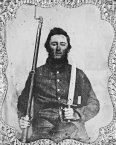
A Confederate soldier: Georgia Private Thomas Kitchen. Courtesy of the Library of Congress
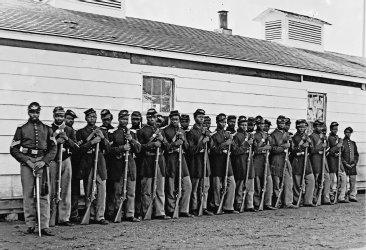
Company E., Fourth United States Colored Infantry at Fort Lincoln. Courtesy of the Library of Congress
Introduction
T HE FACT that slavery is the sole undeniable cause of this infamous rebellion, that it is a war of, by, and for Slavery, is as plain as the noon-day sun. 1 So claimed the farmers, shopkeepers, and laborers who made up the Thirteenth Wisconsin Infantry Regiment in February 1862. The white Southerners of Morgans Confederate Brigade might not have seen eye to eye with the Wisconsin men on much in 1862, but they agreed that any man who pretends to believe that this is not a war for the emancipation of the blacksis either a fool or a liar. 2 Two years later, black men in the Fourteenth Rhode Island Heavy Artillery reminded each other, upon your prowess, discipline, and character; depend the destinies of four millions of people and the triumph of the principles of freedom and self government of this great republic. 3 These soldiers plainly identified slavery as the root of the Civil War. Just as plainly, by slavery, they did not mean some abstract concept or a detached philosophical metaphor for ideas about freedom, but rather the actual enslavement of human beings in the United States based on race.
Yet to say that soldiers placed slavery at the center of the war is to open rather than solve a mystery. Neither the authors nor the intended audiences of these remarks held high office or made policy. Few owned slaves, and few of the white soldiers thought of themselves as abolitionists. They were instead very ordinary men of the type unlikely to figure in historical inquiries into the causes of the Civil War; they were men often assumed, even by historians from both the North and the South who for decades have acknowledged that without slavery there would have been no Civil War in the United States, to be little more than pawns swept up in events they probably did not understand, let alone consent to or shape. Members of the general public recognize even less of a connection between soldiers, slavery, and the Civil War. My most recent reminder of this sobering truism came at a wedding in September 2005, when a man from Buffalo, New York, who had no idea what I do for a living, spent more than an hour insisting to me that slavery had nothing to do with the conflict. And who can blame him? The Confederate ranks consisted primarily of men who owned no slaves, and historians have not convincingly explained why those men would fight a war they knew was waged to prevent the destruction of slavery. At the same time, scant numbers of the white men who filed into the Union Army had ever laid eyes on a slave, though most harbored their own prejudice against black people, so why would they fight to end slavery? And why would more than 180,000 black men fight for a government that, for its entire existence, had smiled on the enslavement of members of their race? What, in other words, did a war about slavery mean to the men who fought the Civil War, and why would it be important enough to fight?
This book is about what ordinary soldiers thought about the relationship between slavery and the Civil War. It is not about soldiers motivations for enlisting, for individuals chose to do that for widely varied reasons. Seldom did a man enlist for the pay, which was low and unreliable. Few joined the military because they were forced; both Union and Confederate armies overwhelmingly consisted of volunteers. Many enlisted out of a sense of duty or personal honor. Some became soldiers in order to take part in what they assumed would be the biggest adventure of their lives. While some Northerners entered the ranks to help eradicate slavery, others enlisted to preserve the Union, with small concern for enslaved African Americans. In the South, many took up arms to safeguard their own slave property or their hopes to own slaves one day, while others shouldered rifles out of the belief that doing so protected their homes and families. Yet in spite of these and the countless other reasons that sent individual Northerners and Southerners into the ranks, broad consensus existed within each army as to why a war needed to be fought in the first place. Whatever else occupied their minds, ordinary Union and Confederate soldiers recognized slavery as the reason for the war, and the purpose of this book is to figure out why that was, and what it meant for the war and the nation.
Most Confederate soldiers owned no slaves, and more than anything else in the world, they cared about the interests and well-being of their own families. Why, then, would an ordinary, nonslaveholding white southern man readily identify slavery as the reason for the war, and why would he consider it important enough to himself and his family to imperil both in a fight to prevent its abolition? Why would men continue to fight for four desperate years, through military catastrophes like Gettysburg and Atlanta and through political disasters like the reelection of President Abraham Lincoln, and then stop in the spring of 1865?
Next page

